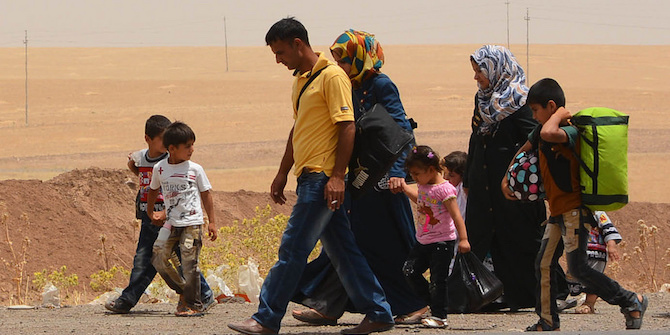by Joseph Saba
As part of the proceedings following the MEC and ECFR’s conference on Europe’s role in the Israel-Palestine relations after the Kerry effort, here is the third blog piece by Joseph Saba. If you’ve missed our past posts in the series, here are links to Phyllis Starkey’s piece and Alaa Tartir’s.

Aligned with a “peace process” built on the Oslo Agreements, the EU has been a strong supporter of the Palestinians and their quest for self-determination, pursuing an ambitious, norm-based vision for resolution of the Israeli-Palestinian conflict – the “Two-State solution” including a democratic, viable, and contiguous State of Palestine and a secure Israel. Recognizing the increasing constraints to these goals, EU declarations at the highest level have specified and condemned persistent obstacles including prolonged occupation, Israeli restrictions on movement and access to basic resources, and ever expanding settlements. The EU has also called for an end to Palestinian political and territorial fragmentation and the resumption of democratic process. The EU’s explicit political goals have been underpinned by a generous flow of EU aid.
There is a broad consensus that the EU has achieved a great deal – sustaining welfare for Palestinians, preventing fiscal and economic collapse, compensating for occupation losses, fostering stability and security, while preserving functioning PA institutions capable of assuming the responsibilities of statehood in the event of a settlement of the disputes with Israel.
Yet, notwithstanding ardent declaratory policies, massive financial support, dialogue and other instruments deployed, the EU has had little impact on the main obstacles to achieving the Two-State solution. A persistent pattern of decreasing access to resources and increasing movement restrictions has led to overall Palestinian economic decline with now entrenched dependency on donors. This pattern suggests ever diminishing prospects for the EU goals of Palestinian economic and fiscal viability and geographic contiguity. A recently completed and timely (given recent EU elections) evaluation of EU support to Palestinians by the European Commission cites incoherence in EU external action between its declared policies and its practice. It recommends that the EU undertake a full “greenfield approach” to restructure its external action – financial and political – for more coherent, effective, and efficient outcomes, consistent with EU political goals and norms for human rights and democratic good governance.
In this unique context, apart from the numerous EU Foreign Ministers’ Council Conclusion declarations and other high level statements, there has been little strategic, systematic, and sustained results-oriented action at a high level between the EU and Israel linked to financial assistance effectiveness. The lack of a complementary and effective political track involving Israel directly in the support to Palestinians – “triangulation” – has limited the EU’s progress towards its overarching goals.
Moreover, by 2014 the exceptional situation of resource and rights deprivations, economic decline, donor dependency, absence of democratic process and political fragmentation has come to undermine EU principles and credibility for democratic good governance, and threaten the State-building accomplishments of the past twenty years.
All this leads to an overall picture that is sobering. On the one hand, the EU has seen important accomplishments. The EU can legitimately claim to be the most reliable partner and the largest contributor to Palestinian welfare. All these efforts contribute to the broad goal of stability, at least in the short term. Yet little was done to remove the most significant obstacles to sustainable outcomes for peace and the achievement of a viable, democratic and contiguous Two-State solution. Absent effective measures to address these obstacles, the EU is unlikely to achieve its oft declared goal of a Two-State solution. Moreover prolonged failure to achieve the Two-State solution, combined with unsustainability of service delivery at current levels jeopardizes the EU goal of stability and undermines EU credibility in the entire region.
There is an accountability deficit in the Palestinian territories. The lack of democratic process has left Palestinians with virtually no mechanism for holding accountable the numerous and fragmented institutions providing public services. While there was an understandable emergency in 2006-2009 necessitating “temporary” measures for quick injection of funds, over time, as the EU supported public service delivery through the PA, it has also indirectly facilitated a governance system that lacks accountability to the Palestinian population served – a pattern increasingly counterproductive to EU norms for good governance. Hopefully, the new Interim Palestinian government will remedy the situation through free and fair elections to establish mechanisms for democratic oversight and accountability.
Thus, there is a widespread view that the current Oslo based paradigm has reached its limits in the absence of a parallel political track that addresses the binding constraints with more coherent and effective implementation measures. Continuing past peace process patterns without such action would reduce EU efforts to a Sisyphean task. But then Camus might argue that such activity in itself imparts positive meaning.
View this post on the ECFR MENA blog
Joseph Saba is an adjunct professor at Georgetown University in the US.






